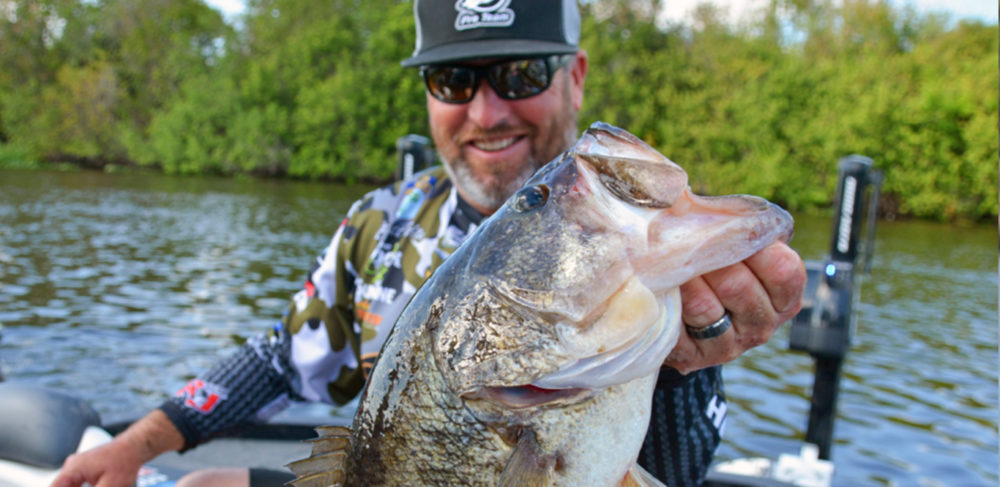Deciphering Florida’s Fickle Cold-Weather Largemouth

KISSIMMEE, Fla. – If you landed at the Orlando airport in the past few days, you would have noticed airport employees and fellow Florida residents wearing jackets and hooded sweatshirts, while the newly arriving tourists from the north donned shorts and flip-flops.
Temperature highs in 50s and 60s – which is in the forecast all week in Kissimmee for the MLF Bass Pro Tour B&W Trailer Hitches Stage One Presented by Power-Pole – are viewed much differently depending on where you live.
The same is true of Florida-strain largemouth: They’re not used to the cold, and simply don’t like it.
Cold fronts and early-season Florida bass tournaments go hand in hand, and cooler weather always seems to affect the bite at these events. After the most recent cold front in Florida, another is on the way, and it could play into the outcome at the inaugural Bass Pro Tour event, which kicks off Tuesday.
Temperamental in lower temperatures
Marty Mann, the Florida Fish & Wildlife Commission biologist who handles the Kissimmee Chain of Lakes, offered his input on what makes this strain of largemouth bass change their ways once the water starts to get cold.
“The Florida-strain subspecies grow faster and get bigger, and that’s what makes them so desirable to fishermen – these are not the same largemouth bass that you find in Ohio or Michigan,” he says. “Right through the center of Tennessee is where the Florida-strain’s range ends – in the southern half of the state they do well, and it is simply too cold north of that. You can draw a line across the country from there to see where they can survive, because they’re highly temperature sensitive and just do not like the cold.”
The first instinct for Florida-strain largemouth when water temperatures drop, according to Mann, is to slow down and wait it out until the water temperature is more comfortable.
“They hunker down and get lockjaw, and it can be tough to get them to bite anything because they are not feeding as much,” he says. “They’ll try to find refuge from the cold, and in Florida with our lack of deep water, that usually means matted vegetation.”
Forecast for competition week
Looking through his weather app, Mann was able to make some predictions on how the fishing might be for the 80 anglers set to blast off at Lake Toho on Tuesday, and finish at Lake Garcia on Sunday.
“Overall, the current cold fronts have not been as dramatic as some of the windy and nasty cold fronts that we sometimes see during the winter, but the fishing this week will still be affected,” he says. “Some cold fronts have a 15- or 20-degree swing from day to day, and on those days you should plan on staying home instead of going fishing for Florida-strain largemouth. This one that is coming is not as severe with a predicted change of around 10 degrees between Tuesday and Wednesday.”
Mann feels that the weather is setting up for a good fishing day on Tuesday before the cold front is scheduled to arrive that afternoon. If that is the case, the fishing during the second Shotgun Round and first Elimination Round could prove challenging.
“A 10-degree air temperature change translates to a 5-, 6-, or 7-degree change in water temperature and that greatly affects our bass,” adds Mann.
The good news for the anglers and fishing fans is that the water will continue to warm and Friday, Saturday and Sunday could end up being prime weather conditions.